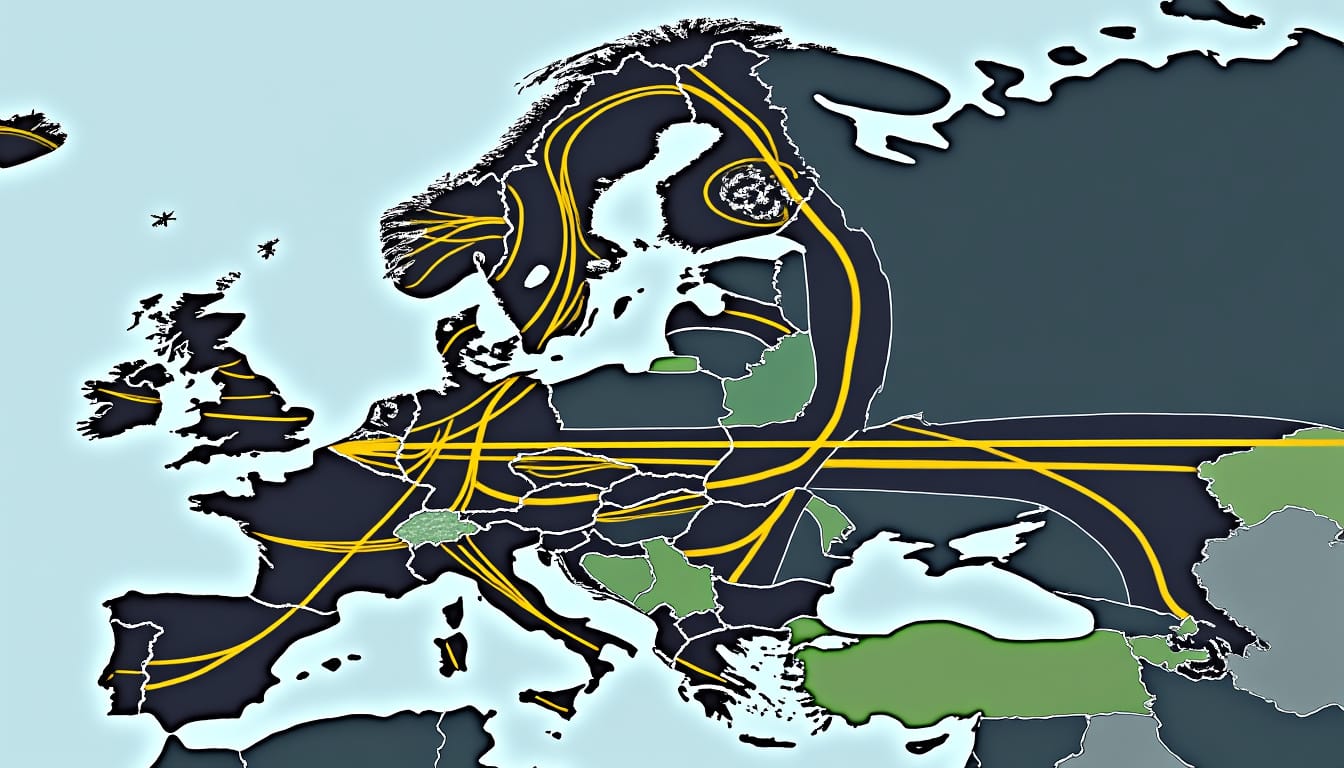An award for innovation: motorcycle-specific road marking

Road safety is a crucial issue in our society, and recent developments in road marking prove it. In this year 2024, an innovative road marking project aimed at motorcyclists has received a prestigious award, highlighting the importance of protecting one of the most vulnerable road users. This project, led by the KFV in Austria, aims to reduce motorcycle accidents on winding roads. This advancement is part of a larger initiative within the European Union, which promotes creative solutions to enhance road safety.
Through this article, we will explore the details of this project as well as other notable initiatives that contribute to protecting motorcyclists on our roads. It is essential to understand the context of this innovation in order to fully appreciate its potential impact on road safety.
Road marking: a significant innovation
The road marking project initiated by the KFV is part of a broader approach supported by the European Road Safety Charter, which, since its inception over 20 years ago, has brought together more than 4000 entities committed to improving road safety. The commitment of these organizations demonstrates the importance placed on the protection of all road users, particularly motorcyclists who ride on high-risk routes.
An innovative approach to safety
Winding roads present unique challenges for motorcyclists, making their protection all the more necessary. The specific marking developed in Austria takes the form of circles or W painted along the center line. This type of marking aims to encourage motorcyclists to remain in the center of their lane, thus limiting the risks of collisions with vehicles coming from the opposite direction. First implemented in 2007, the project has undergone many changes, and in-depth analyses have been conducted to evaluate its effectiveness.
The results of these analyses are encouraging, demonstrating an impressive 80% reduction in bodily accidents involving two-wheeled users on the concerned roads. This innovation represents a considerable advancement in the field of road safety and stands out for its efficiency and speed of implementation.

The impact of the initiative
The implementation of this road marking has received a positive reception among motorcyclists and local authorities. By allowing for a road safety approach that does not rely on punitive measures but encourages safe behavior, this initiative has demonstrated that it is possible to integrate innovation into road safety strategies. Furthermore, user feedback has been invaluable in refining the system and increasing its effectiveness.
It is interesting to note that this marking model is gradually being developed in other European countries, such as Switzerland and Scotland. This spread reflects a shared desire to improve road safety on a continental scale. These shared initiatives promote an exchange of expertise, allowing each country to learn from the successes of others in designing their own safety measures for motorcyclists.
Other awarded projects
The 2024 excellence award also recognized other notable projects, such as the Axencia Galega de Infraestruturas in Spain, which has created pedestrian paths and bike lanes, the improvement of urban signage in Bavaria, and the 30 km/h zones implemented in Bologna. These complementary initiatives illustrate that there are multiple avenues to bring significant improvements to road safety, whether for carriages, pedestrians, or two-wheeled users.
Beneficiaries: vulnerable users and motorcyclists
Vulnerable users, whether pedestrians, cyclists, or motorcyclists, are often more exposed to road dangers. In France, training has been implemented to teach the secure trajectory to new motorcyclists, but other countries, particularly those that have lifted protective measures, focus on solutions such as road marking to address this lack. The choices adopted are not just a matter of regulation but also a matter of road safety culture.
The training of motorcyclists: a crucial issue
Enhanced safety courses for motorcyclists are a vital step in reducing accidents. By complementing this training with intelligently designed road markings, a multifaceted approach to safety can be achieved. The idea is that every road user, particularly motorcyclists, has the necessary tools to navigate safely on potentially dangerous roads.
There are local examples of adapting road signage, such as the PRIME project that has been implemented on sections of roads. The use of funnel markings encourages appropriate driving behavior, an innovative and proactive approach aimed at maximizing safety.

The advantages of road marking for motorcyclists
The benefits of specific road marking for motorcyclists go beyond mere accident reduction. Effective marking increases the visibility of motorcyclists, encourages them to adopt safer driving behaviors, and helps to establish a respectful and safe road culture. Implementing such signage is a proactive measure, as it is both cost-effective to set up and quick to deploy.
This type of innovative solution resonates particularly in the field of road safety, emphasizing that prevention must also involve measures that encourage safe behaviors, as opposed to a punitive stance through fines or other sanctions. Road marking then serves as a true ally for motorcyclists, allowing them to be educated without being constrained, and granting them the freedom to adopt more thoughtful behaviors.
A model to follow for other European countries
The Austrian model of road marking dedicated to motorcyclists could well inspire other countries. At a time when challenges regarding road safety remain relevant, every initiative taken to improve the safety of road users must be highlighted. The Austrian example showcases a simple, quick, and efficient system that could be replicated and adapted in various European contexts. The benefits associated with integrating this type of marking are numerous and could encourage changes in existing practices.
Cultural differences and adaptation of solutions
It is crucial to consider cultural differences when seeking to expand such initiatives. Each country has its specificities regarding driving, road education, and legal frameworks. Therefore, solutions must be adapted locally. An example is the development of road marking systems in Switzerland and Scotland. These countries take the Austrian project as an example to implement their own road safety measures.
Initial results in these countries show that local adaptations favor public acceptance and the effectiveness of the system. Shared feedback between countries is essential for designing effective and relevant solutions that address the specific challenges of each context.

Future perspectives for road safety
Ongoing research in road safety shows that innovations like specialized road marking for motorcyclists are essential to meet today's needs. Implementing these solutions could significantly reduce the number of accidents and improve safety on the roads. Other countries should closely observe the results of the Austrian project and consider similar solutions.
Technological advances in road marking could also play a role in the evolution of these systems. The combination of modern technologies with traditional road marking could give rise to even more effective solutions. The introduction of technologies such as RFID chipsets or other smart devices concerning traffic could sustainably transform our roads.
Conclusion on the future of motorcyclists
Ensuring the safety of motorcyclists on our roads is a constant challenge that requires special attention and the implementation of innovative initiatives. The Austrian road marking project has proven its effectiveness, and it shows a path forward for other countries. By integrating technology, improving road education, and implementing suitable marking devices, the future of motorcyclists can be secured on the roads of tomorrow. Road safety statistics in Europe show that 20,400 lives were lost last year, a figure that deserves to be significantly reduced.
Leave a Reply



Articles relatifs